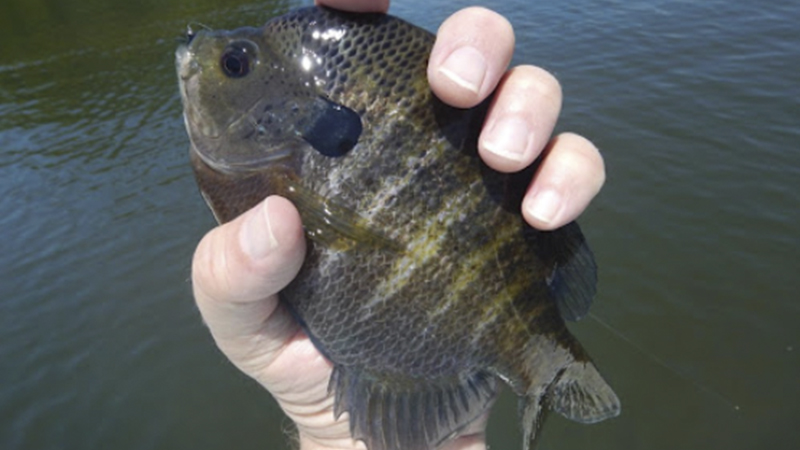I had gone to Santee Cooper in early June with the intention of catching bluegill on my fly rod. Fishing with Kevin Davis out of Blacks Camp, I had no doubts my host would put me on fish. My objective was to fish spawning beds in a few feet of water with a popper and wet-fly dropper.
I feel obligated to digress here and mention my passion for catching bluegill on their spawning beds. I don’t need to keep them other than the occasional mess, but a bluegill is just a fun fish to catch. They smack flies like they are tasting them, almost licking their lips, and then those panfish fight with a passion that belies their size.
In short, during spring and early summer, I often drive past trout streams to get to a good bluegill pond. Among my bad habits, this one can hardly be held against me.
As is typically my dilemma, I was a week early on the spawn and the fish were mostly in deep water still. Kevin managed to find some fish for me I could reach in shallow water with these flies, but the challenge had been issued by my finny friends so I was determined to try again with flies that could go deep.
Through the summer I tied weighted versions of bugs that catch bluegill. Clousers with oversized barbells and nymphs with enough weight to drop like cannonballs filled my fly box. I leaned slightly to one side when I put the box in my pocket.
Then, I rigged my fly rod with a longer leader and fluorocarbon tippet, thinking that I could still get by with a floating line. In ten feet of water, my line tip might work like a strike indicator when I got a bite.

Pedro looked at my fly rod and asked, “What do you plan to do with that?”
The next chance I got to chase deepwater bluegill came during our South Carolina Outdoor Press Association conference at Santee Cooper. This one was held in October and I expected the bluegill to be deep, most likely around brush. We had lined up plenty of guides to get our media members on the lake, so I was confident of getting a ride in a panfishing boat. I guessed wrong.
As it turns out, I was assigned to chase catfish with Captain John Smith, who goes by “Pedro.” He never said how he got his nickname, but I’m guessing the Pocahontas jokes got old. As I stepped onto his boat, he took one look at my fly rod and said, “What do you plan to do with that?”
You can read the rest of this award-winning story, written by Jim Mize, by clicking here to visit riversandfeathers.com

